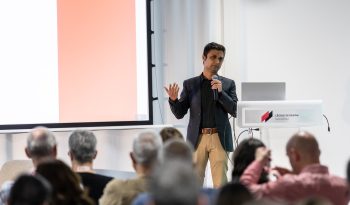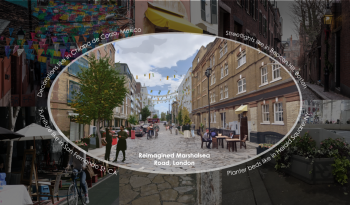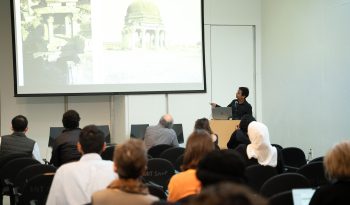It was a pleasure to have been invited as one of the keynote speakers at the Cumulus Association’s Spring Conference 2025 at Nantes, and to also speak at the FAISTOS Meet-Up organized by the City Design Lab of L’École de
Read more
Keynote at CUMULUS 2025, Nantes, France

Research Grant: Generative AI Tools for Urban Design

We were recently announced as awardees for the Sidara Urban Research Seed Grant in partnership with the MIT Norman B. Leventhal Center for Advanced Urbanism! Titled “Beyond Prompts: Analogy-Enhanced Generative AI Tools for Urban Design”, this project with the MIT
Read moreInterview with the MIT Public Interest Technologist

As researchers, we must take the first step of always remaining critical of the degree to which our data represents the ‘public’ and being aware of the conscious or unconscious decisions that have gone into generating the datasets our work
Read moreTalk: Qila-Raipithora and the Politics of Delhi’s Heritage(s)

I recently spoke at the 2024 Correa Symposium “The Design Politics of Inhabited World Heritage Sites“, supported by the MIT Norman B. Leventhal Center for Advanced Urbanism Charles Correa Fund. The talk, “Fact, Fiction and Fantasy: Qila-Raipithora and the Politics
Read moreThe Many Faces of the Metropolis

The Many Faces of the Metropolis: Unsupervised Clustering Of Urban Environments In Mumbai Based On Visual Features As Captured In City-wide Street-view Imagery The larger visual identity of a city is often a blend of smaller and distinct visual character
Read moreThe Tourist’s Image of the City

The Tourist’s Image of the City: A comparative analysis of the visual features and textual themes of interest across three global metropolises Tourist attractions play a major role in shaping ‘mental images’ of cities. The growing availability of urban big-data
Read moreIt’s a jungle out there! A mathematical guide to a comfortable metro ride

Note: An updated version of this work has been published by the Cognitive Science Society, and can be accessed here. It’s a jungle out there. But at the end of the day, its just a game of numbers. So here’s
Read more‘Feeling Spaces’: Machine Learning for Predictive Emotion Analysis

‘Subjectivity’ and the Designer’s Intuition The emotional or ‘affective’ qualities of space have long been referred to as ‘intangible’ and ‘subjective’ aspects that cannot easily be empirically analyzed. Designers thus rely heavily on their own intuitive processes when dealing with
Read moreCAADRIA 2020: Machine Learning for Affective Analysis

For the past couple of months, I’ve been engaged in development of a machine learning driven design assistance framework for the affective analysis of spatial enclosures. The framework relies on data pertaining to emotional response patterns in spatial enclosures which
Read moreResearch: The Logic at Work behind the Magic of Space

In May 2019, I presented a body of research titled “An Empirical Inquiry into the Affective Qualities of Virtual Spatial Enclosures in Head Mounted Display driven VR Systems: The Logic at Work Behind the Magic of Space” at the 7th eCAADe Regional
Read more